“I cook with wine. Sometimes I even add it to the food.”
-W.C. Fields
For 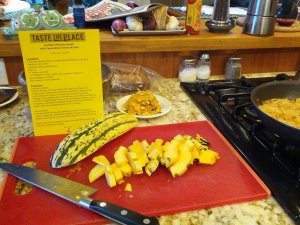 this week, why not get down to basics? Food and the harvest can keep us warm.
this week, why not get down to basics? Food and the harvest can keep us warm.
Friends have been swapping recipes all over the internet lately, but here’s one I picked up at the King Farmer’s Market this icy morning.
To give shoppers a sense of what’s possible, the market managers, Anna and Amber, have arranged for someone to demo a recipe each week. They offer a sampling of food and highlight a piece of the bounty being sold by local farmers.
They often choose a vegetable people might not know how to cook–like delicata squash: It’s wonderful! No peeling necessary! Slice, seed, saute–or toss into a saag or a stew. Options are endless.
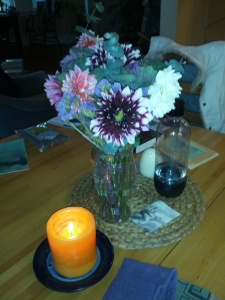
The farmers and vendor and people like Amber and Anna who make the market happen are inspiring. They help to build community–while providing fresh food. And this extra effort–the cooking onsite–gives all of us some new way to find delight.
The cook looked happy as she chopped the delicata and sauteed it fresh. She then mixed in the already caramelized onions–and sprinkled some fresh cheese on top. (Since no one sold feta today, she bought what a vendor had on hand.)
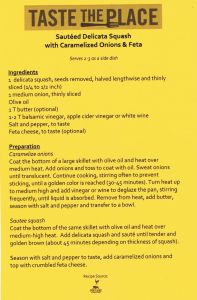 We had today’s demo-recipe for dinner tonight–along with beet greens harvested from the garden yesterday–and some leftover brown rice.
We had today’s demo-recipe for dinner tonight–along with beet greens harvested from the garden yesterday–and some leftover brown rice.
What’s inspiring? Anna and Amber run the market, and a lot of others work alongside and behind the scenes. It’s dedication. It’s community-building. Thanks for being there!
Click the recipe image to expand.
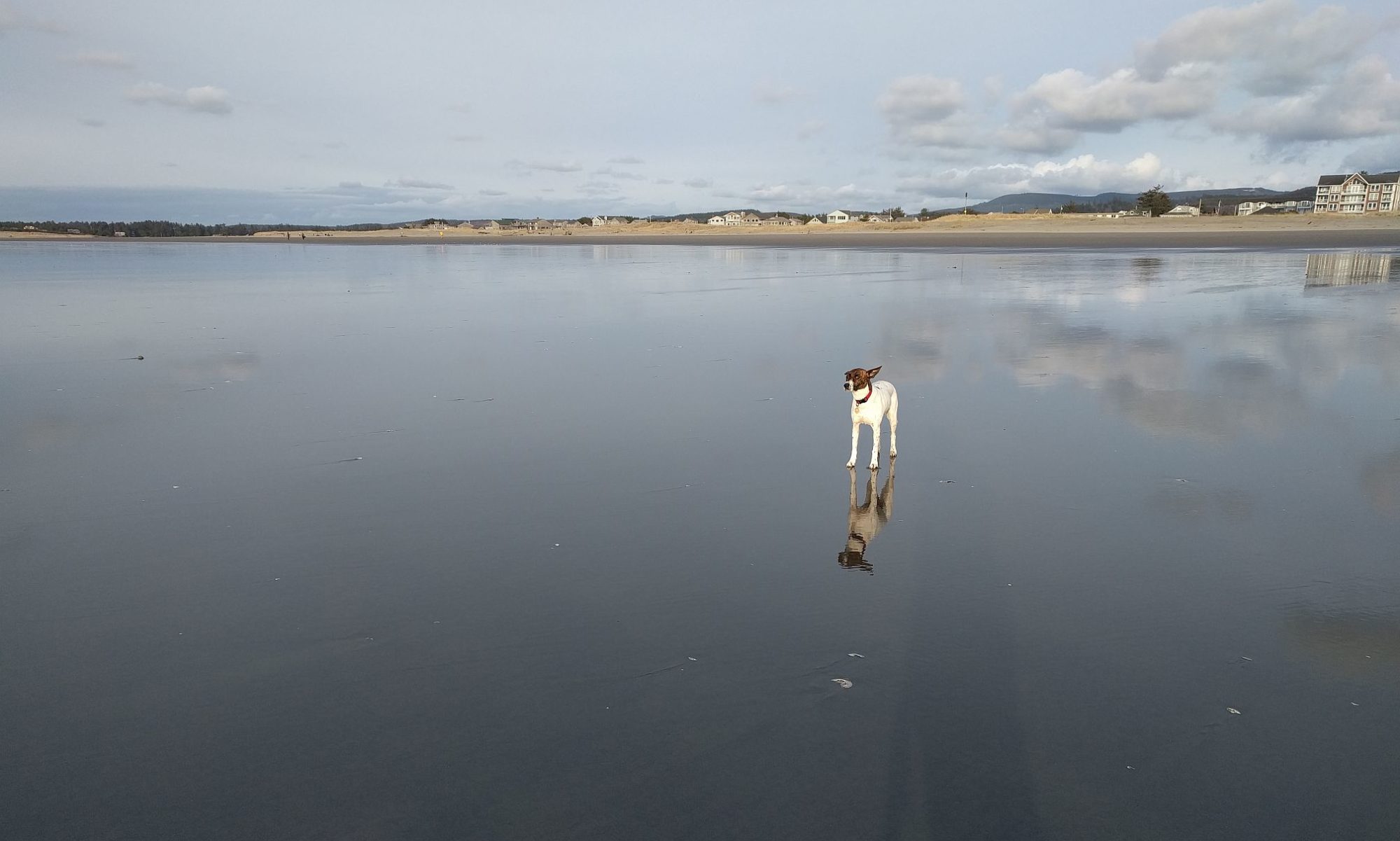

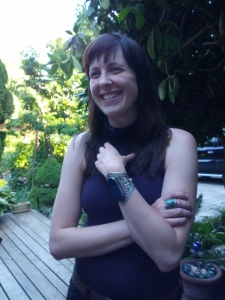 My interest in the outdoors started when I was horseback riding as a child,” says Brooke Hall, now a Naturalist teaching children survival skills, ethnobotany, bird language, primitive crafts and wildlife tracking.
My interest in the outdoors started when I was horseback riding as a child,” says Brooke Hall, now a Naturalist teaching children survival skills, ethnobotany, bird language, primitive crafts and wildlife tracking.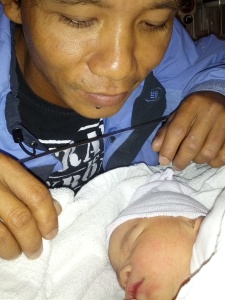 The other day I had my annual appointment with *Jennifer, my dental hygienist.
The other day I had my annual appointment with *Jennifer, my dental hygienist.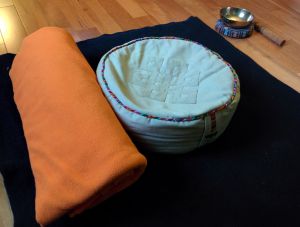 For a bunch of years I would spend at least a week of my summer break away in silence. Usually to
For a bunch of years I would spend at least a week of my summer break away in silence. Usually to 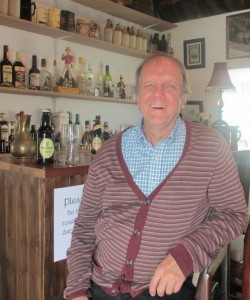
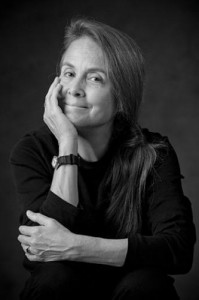 I learn a lot when writing these blog posts–usually when writing anything. This week’s musing on the poem “Kindness” by Naomi Shihab Nye led me to new places. I had to think about why I’d been drawn to the poem so many years ago, and I also learned what led her to write the poem. It had been too long since I read “Kindness” out loud, and then I listened to her reading–which you can find at the end of this post (the 3 min. video where she tells how she came to write this and another poem!)
I learn a lot when writing these blog posts–usually when writing anything. This week’s musing on the poem “Kindness” by Naomi Shihab Nye led me to new places. I had to think about why I’d been drawn to the poem so many years ago, and I also learned what led her to write the poem. It had been too long since I read “Kindness” out loud, and then I listened to her reading–which you can find at the end of this post (the 3 min. video where she tells how she came to write this and another poem!)